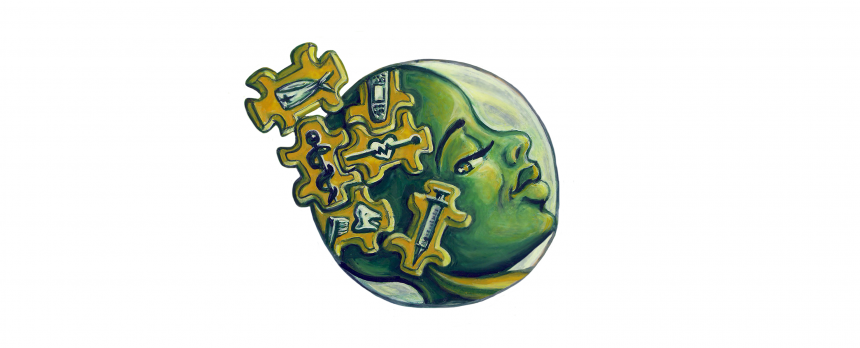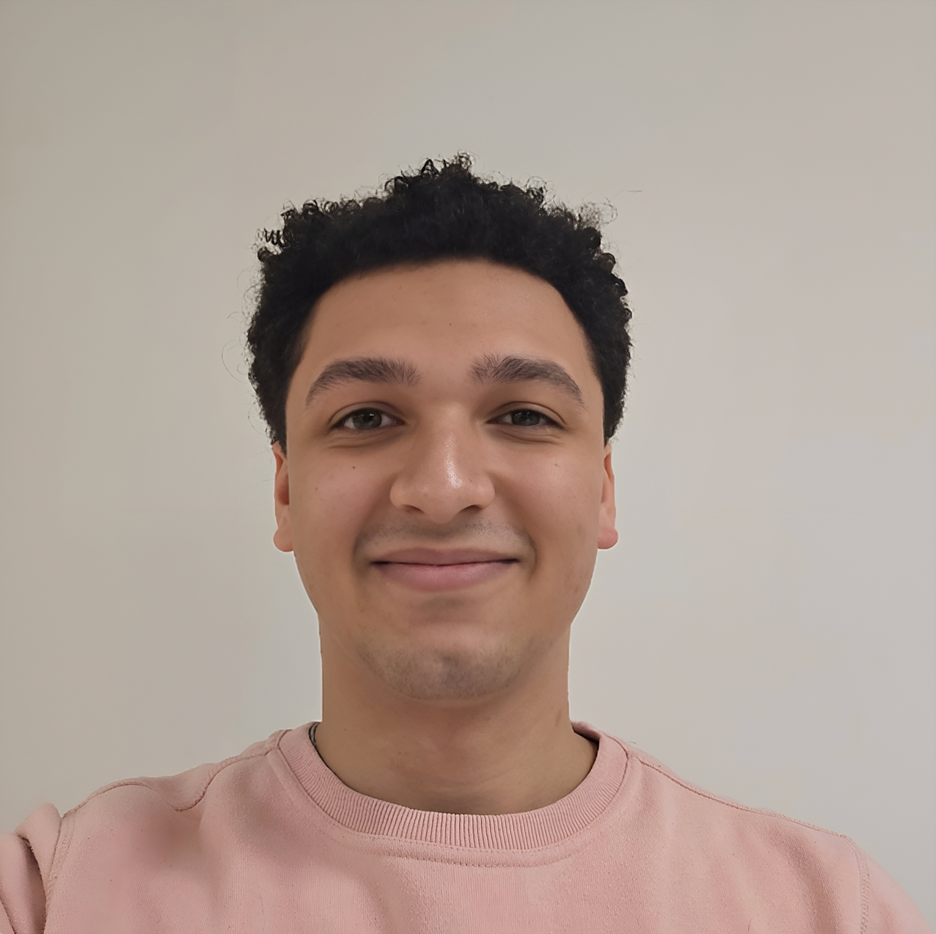
Events

We’re excited to be holding our first Health Humanities Public Lecture in Fall 2024, on September 27th (please save the date)!
Our speaker, Dr. Andrea Charise, the founder of Canada’s first undergraduate Health Humanities program at University of Toronto Scarborough Campus (UTSC), will be sharing her experience and her vision for Health Humanities in Canada. Charise is Associate Professor and Associate Chair of Research in the Department of Health & Society at UTSC, is cross-appointed with the University Health Network and the Department of Psychiatry (Faculty of Medicine), and is a core faculty member in the Collaborative Specialization in Women’s Health at the University of Toronto. In addition to numerous journal articles Charise has authored or edited two books, The Aesthetics of Senescence: Aging, Population, and the Nineteenth-Century British Novel and The Routledge Companion to Health Humanities. She is the founding co-editor of the book series Studies in Health Humanities with Lehigh University Press, the curator of The Resemblage Project, an intergenerational digital storytelling initiative, a studio-based ceramics artist and an end-of-life doula. Please join us for what promises to be a presentation full of insight into the burgeoning field of Health Humanities in this country.
Stay tuned for updates regarding time and location! See you there!
 We are thrilled to shine a spotlight on Avery Beavers, a 5th-year Biomedical Sciences student who will soon be one of the first graduates of the Health Humanities Diploma Program (HHUMD).
We are thrilled to shine a spotlight on Avery Beavers, a 5th-year Biomedical Sciences student who will soon be one of the first graduates of the Health Humanities Diploma Program (HHUMD).
When asked what drew Avery to the HHUMD, Avery shared: “After taking PHIL 319J, Ethics of End-of-Life Care, I was introduced to a niche of humanities that I never previously explored through my degree. I fell in love with the course, and that feeling was then extended to the other HHUM courses, leading me to fully dive into the program.”
Avery’s dedication is evident in his journey of completing the diploma in only two terms. He elaborates on this achievement, stating, “The diploma program is generously set up so that only 5 courses are mandatory to complete the program. So in one term, I took Phil 319J, and in my last term of my degree, I am taking 4 HHUM courses to finish the diploma.”
As a science student, Avery recognizes the invaluable connection between his major and the HHUMD program. He explains, “HHUMD tied into my major as, for many health courses, there is a focus on thesocial determinants of health. HHUMD goes much deeper than that initial understanding and explains the importance of all the other aspects of health and wellness outside the immediate biomedical explanations.
Through the Health Humanities Diploma Program, Avery was able to bridge the worlds of science and humanities. From discovering a passion for humanities, to completing the diploma in two terms, Avery’s dedication underscores the significance of interdisciplinary learning in healthcare education. Keep an eye out for an upcoming video interview with Avery (to be posted on sju.ca/health-humanities) to hear more about his experience!
By Andrew Stumpf, Acting Director, Health Humanities Diploma
After much labour and anticipation, the new interdisciplinary Health Humanities (HHUM) diploma program at St. Jerome’s University and the University of Waterloo launched in September 2023 and offered its courses for the first time in the Fall 2023 and Winter and Spring 2024 terms. This program is one of only a small handful of similar undergraduate programs in Canada. Many of our courses were newly created this year, while others were pre-existing courses now being offered as part of the diploma. Each course is a window of much-needed insight into the way the Humanities contribute to a well-rounded understanding of human health and illness. With a health care system in significant distress and healthcare worker burnout at an all-time high, an exploration of the human side of medicine and healthcare has perhaps never been more relevant.
As director of the program, I am very grateful for the work our instructors have put into making our HHUM courses a deeply meaningful experience for students. Home departments of our excellent instructors include History, English, Italian Studies, Psychology, Sexuality Marriage and Family Studies, Religious Studies, Medieval Studies and Philosophy. This diversity of disciplinary background gives our small program an amazing breadth and scope, providing students with opportunities to complement their undergraduate education in Health, Science, Arts, Environment, Engineering and Mathematics. Many students taking HHUM courses aspire to careers in health-related fields, as healthcare professionals, as health educators, or in health policy. We are happy to provide this chance for students to distinguish themselves as individuals with skills in communication, critical thinking, careful analysis of texts, historical literacy, and the ability to navigate the ethical challenges of the contemporary world of health and healthcare.
In the coming 2024-25 academic year the diploma program is ready to offer some of its courses a second time, and others as freshly developed courses available for the first time. We look forward to our first online offering, HHUM 307 Concepts of Health and Disease in Western Medical History, available in Fall 2024. Our first Health Humanities Public Lecture, to be held on September 27, will be an opportunity for members of the UW community to engage with important figures and ideas from the field of Health Humanities. I am also grateful for the collaborative relationships that have been developing with colleagues in Biology, Kinesiology, Pharmacy and Health Sciences. This program provides an excellent chance to make interdisciplinary collaboration more than just a buzzword. Together with the other members of the Health Humanities Committee, Dr. Carol Acton and Dr. Maureen Drysdale, I wish all of you the very best and look forward to connecting and working with you in the upcoming year.
Reposted from the University of Waterloo Daily Bulletin, June 12, 2023
The pandemic has illuminated gaps in our approach to health care. The need for humanities-based thinking and methodologies to respond to complex problems, nurture leaders to respond holistically to health-related challenges, and guide and foster action in a compassionate, human-centred way is necessary to bring systemic change to our healthcare system.
In collaboration with the University of Waterloo's Faculty of Arts, St. Jerome's University is launching a new Health Humanities diploma for the fall 2023 term. This diploma will draw upon multiple humanities disciplines to encourage students to cultivate core competencies in the human, subjective, and qualitative side of health and whole-person care. The diploma requires the completion of five comprehensive courses. It is open to current undergraduate students, non-degree or post-degree students or anyone with a role in healthcare where this type of training will augment their recent experience.
“The Health Humanities diploma draws upon the research expertise of faculty across many disciplines at St. Jerome’s including, for example, recent SSHRC funded scholarship on end of life care. Catholic organizations have long been involved in both education and health care. This new diploma aligns with our institutional commitment to fostering the development of graduates who will contribute to the creation of a more compassionate and just society and who respect the dignity of all persons. We look forward to welcoming students from a variety of degree plans into our classes in SJ1 and SJ2 this Fall,” says Dr. Carol Ann MacGregor, vice president academic and dean at St. Jerome’s University.
Many post-graduate programs in health-related disciplines, including medical schools, are increasingly expecting candidates to show proficiency with humanistic skills, including those related to effective communication, narrative interpretation and ethics. The diploma will give these graduates a credential that showcases their expertise in humanities training pertaining to the health field. Students completing this diploma will learn the importance of a historical perspective, develop their ability to think critically and reflectively, engage in ethical deliberation, and acquire a range of interpretive skills while increasing their sensitivity and understanding of cultural differences and inequalities in healthcare.
“The Health Humanities Diploma offers a wonderful opportunity for interdisciplinary learning for degree-seeking students and lifelong learners. Combining the insights and analytical techniques of humanities practice with the knowledge-base and modes of understanding of health sciences, the courses open doors to insights and approaches that our communities and society urgently need,” says Dr. Kathy Acheson, associate dean, undergraduate programs in the Faculty of Arts.
For more information about the Health Humanities diploma, please visit the St. Jerome’s website or contact Dr. Andrew Stumpf, professor of Philosophy and acting director of health humanities.